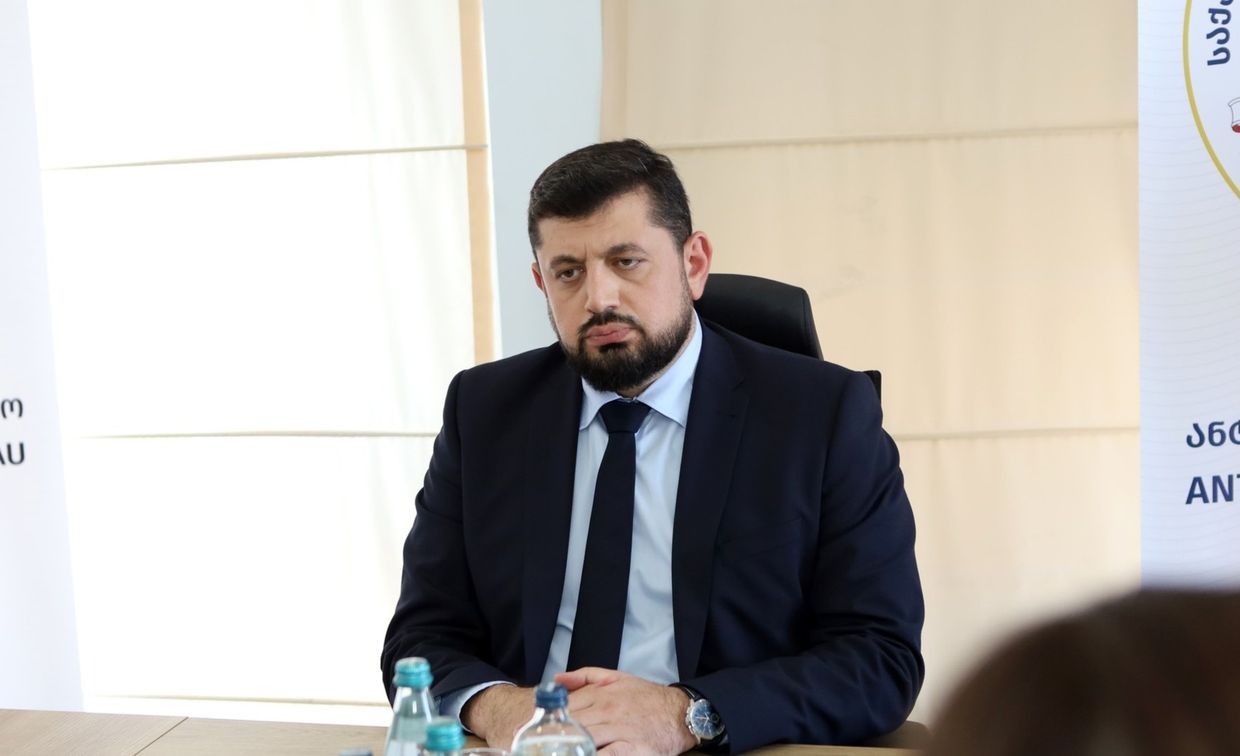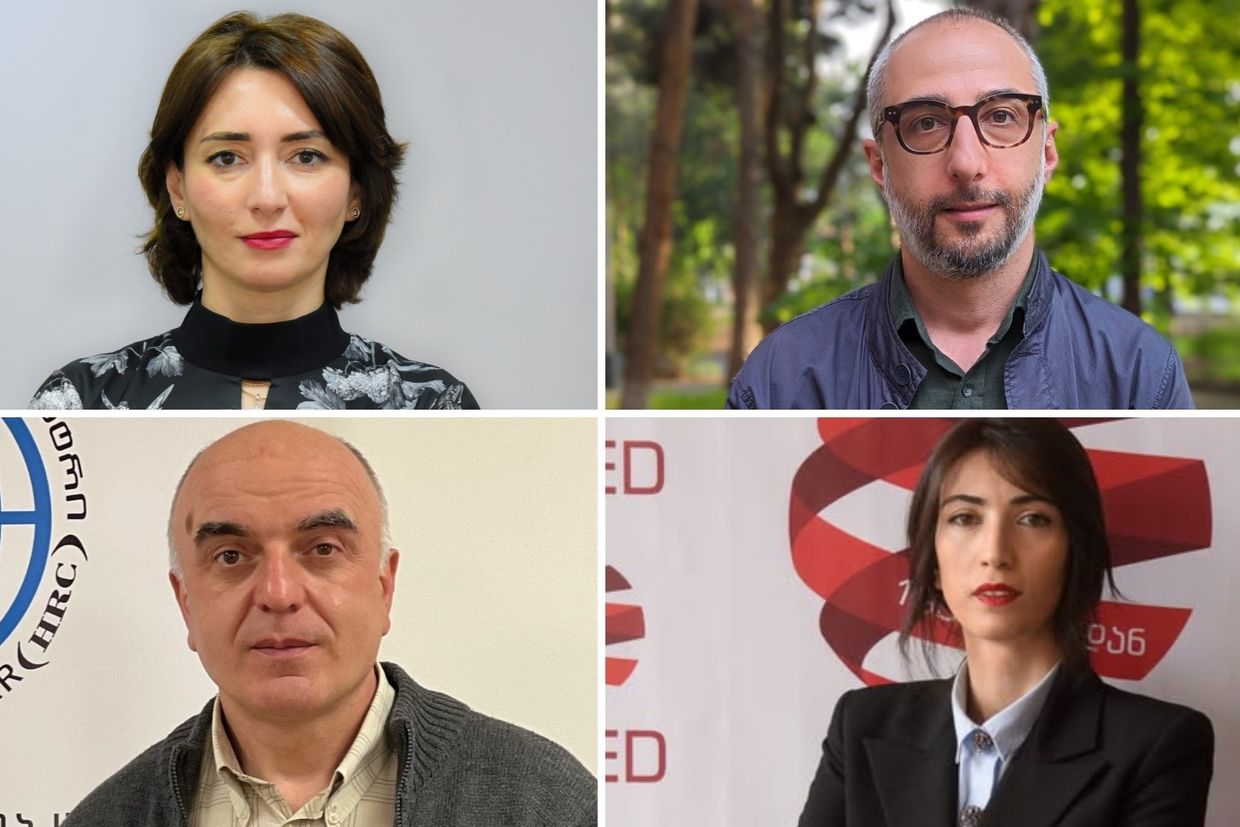
Georgia’s Anti-Corruption Bureau has again targeted civil society organisations using the law on grants amended in April. In the first publicly known inquiry under this legislation, the bureau demanded extensive information from around 30 organisations and, after they resisted, began seeking court approval to obtain it.
The organisations issued a joint statement on Monday regarding the bureau’s inquiry, calling the process a ‘new stage of repression’, and the law itself unconstitutional.
According to them, the bureau, headed by Razhden Kuprashvili, requested various categories of information related to NGO activities dating from 16 April 2025 to the present, without specifying under which article of the law it was making the request.
The latest amendments to the law on grants were adopted on 16 April 2025 by the ruling Georgian Dream party, as part of a barrage of restrictive measures targeting government critics.
The legislation restricted both media and civil society organisations from receiving a foreign grant unless it has the consent of the government or a person or body authorised by it. The donor organisation is required to submit a draft agreement of the grant to the government before its approval.
The adopted changes were a major blow to civil society and media organisations — many of which rely heavily on grants from international donors.

According to Monday’s statement, the bureau demanded information from almost 30 groups, among whom 20 signed the public statement condemning the process. The remaining 10 were likely trying to avoid publicising the move by signing the joint statement. The NGOs received official inquiry letters on different days in September.
The list included the Georgian Young Lawyers’ Association (GYLA), the Institute for Development of Freedom of Information (IDFI), the Tolerance and Diversity Institute (TDI), the Human Rights Center (HRC), as well as the Women’s Initiatives Supporting Group (WISG) and the Equality Movement, both focused on queer issues. The Georgian Centre for Psychosocial and Medical Rehabilitation of Torture Victims (GCRT) and Rights Georgia have also come under inquiry.
WISG told OC Media that they received the bureau’s letter on 4 September.
‘According to the letter, proceedings are underway to determine the organisation’s compliance with the law on grants of Georgia [...] three working days were set to submit the [requested] information’, the WISG said.
In response, the WISG and others informed the bureau that they had not received any new grant agreements since the law came into effect, nor had they made changes to existing agreements.
‘Accordingly, the initiation of monitoring procedures [...] was unlawful. Civil society organisations also requested access to the case materials from Kuprashvili’s bureau. However, the bureau continues to withhold this information, thereby additionally violating the existing legislation’, the joint statement said.
As their response was not accepted, according to the organisations, the bureau filed court motions to enforce its requests, which have already been granted for nine NGOs. All of them are now obliged by the court to provide the bureau with information related to their activities.
‘The court actually transferred the reasoning of the bureau’s motion unchanged into the order, without examining either the factual or legal basis of the motion, thereby refusing to exercise the judicial control granted to it by law’, the organisations said, noting that they will continue their work and the ‘legal efforts to stop the enforcement of repressive laws’.
OC Media has contacted the bureau for comment.
Georgian Dream’s campaign against NGOs
The inquiry under the law on grants is only part of a broader process of targeting the civil society groups by various state institutions.
Earlier, in June, the Anti-Corruption Bureau requested extensive information from several major Georgian civil society groups through the courts under laws related to political associations and corruption. At the time, Kuprashvili said the bureau’s work would focus on identifying organisations whose activities do not align with their declared objectives and are ‘covertly engaged in political activity’.
Later, in August, an inquiry into the organisations was launched under the Foreign Agents Registration Act (FARA) — a law adopted by Georgian Dream as a Georgian version of the US law by the same name. Critics, however, emphasised that the legislation in the US had not been used to target civil society or media organisations.
During the same period, civil society groups were also targeted by Georgia’s Prosecutor General’s Office. At the end of August, the agency accused seven organisations of facilitating violence during the early stages of ongoing anti-government protests in Tbilisi — allegations the groups denied as baseless and defamatory.
As part of the case, the court froze bank accounts of all seven NGOs, and the Prosecutor General’s Office subsequently summoned their heads for questioning.
The Georgian government’s policy toward civil society groups has become particularly hostile over the past two years, alongside its adoption of a series of restrictive laws.
The adoption of these laws has accelerated against the backdrop of daily anti-government protests triggered by the ruling party’s decision to halt Georgia’s EU membership bid in November 2024.
Georgian Dream has repeatedly claimed that these measures were necessary to fight the ‘influence of external powers’. Nonetheless, critics of the ruling party have insisted that the state actions aim to undermine the media and civil society in an already fragile democracy.











